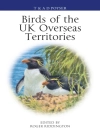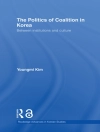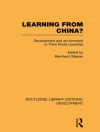`I wish the Handbook of Ethnography had been available to me as a fledgling ethnographer. I would recommend it for any graduate student who contemplates a career in the field. Likewise for experienced ethnographers who would like the equivalent of a world atlas to help pinpoint their own locations in the field, the Handbook of Ethnography is it′ – Journal of Contemporary Ethnography
`This wonderful Handbook establishes the central, and complex place ethnography now occupies in the human disciplines. All future work will begin here′ – Norman K Denzin, University of Illinois, Urbana-Champaign
`A marvellous achievement! The Handbook has all the marks of a winner – compelling writing, comprehensive coverage and very useful discussions. This is a real benchmark for ethnography. It will set the background for debate and point to new directions for years to come. My graduate students will love it′ – Jaber F Gubrium, University of Florida, Gainesville
`The Handbook of Ethnography compiles invaluable, original, critical essays on ethnographic work, earning it a place on everyone′s must-have bookshelf′ – Virginia Olesen, University of California, San Francisco
`The Handbook is a remarkable synthesis of existing thinking in and around ethnography′ – Forum for Qualitative Social Research – follow the link below to read the complete review
`No self-respecting qualitative researcher should be without Paul Atkinson (et al′s) handbook on ethnography. This really is encyclopaedic in concept and scope. Many ‘big names’ in the field have contributed so this has to be the starting point for anyone looking to understand the field in substantive topic, theoretical tradition and methodology. The chapters on visual ethnography and semiotics expand the field marvellously, while those on field notes and on ethics are accomplished surveys of the field′ – SRA News
Ethnography is one of the chief research methods in sociology, anthropology and other cognate disciplines in the social sciences. This Handbook provides an unparalleled, critical guide to its principles and practice.
The volume is organized into three sections. The first systematically locates ethnography firmly in its relevant historical and intellectual contexts. The roots of ethnography are pinpointed and the pattern of its development is demonstrated.
The second section examines the contribution of ethnography to major fields of substantive research. The impact and strengths and weaknesses of ethnographic method are dealt with authoritatively and accessibly.
The third section moves on to examine key debates and issues in ethnography, from the conduct of research through to contemporary arguments.
The result is a landmark work in the field, which draws on the expertise of an internationally renowned group of interdisicplinary scholars. The Handbook of Ethnography provides readers with a one-stop critical guide to the past, present and future of ethnography. It will quickly establish itself as the ethnographer′s bible.
Tabla de materias
Introduction to Part One
The Chicago School of Ethnography – Mary Jo Deegan
Symbolic Interactionism and Ethnography – Paul Rock
Currents of Cultural Fieldwork – James D Faubion
British Social Anthropology – Sharon Macdonald
Into the Community – Lodewijk Brunt
Mass-Observation′s Fieldwork Methods – Liz Stanley
Orientalism – Julie Marcus
Ethnomethodology and Ethnography – Melvin Pollner and Robert M Emerson
Phenomenology and Ethnography – Ilja Maso
Semiotics, Semantics and Ethnography – Peter K Manning
Grounded Theory in Ethnography – Kathy Charmaz and Richard G Mitchell
Introduction to Part Two
The Ethnography of Health and Medicine – Michael Bloor
Ethnographic Research in Educational Settings – Tuula Gordon, Janet Holland and Elina Lahelma
Ethnography and the Study of Deviance – Dick Hobbs
Ethnographies of Work and the Work of Ethnographers – Vicki Smith
Ethnography and the Development of Science and Technology Studies – David Hess
Ethnography in the Study of Children and Childhood – Allison James
Ethnography and Material Culture – Christopher Tilley
Ethnography – Joost van Loon
A Critical Turn in Cultural Studies
The Ethnography of Communication – Elizabeth Keating
Technologies of Realism? Ethnographic Uses of Photography and Film – Mike Ball and Greg Smith
Introduction to Part Three
Ethnography as Work – Christopher Wellin and Gary Alan Fine
Career Socialization, Settings and Problems
The Ethics of Ethnography – Elizabeth Murphy and Robert Dingwall
Participant Observation and Fieldnotes – Robert M Emerson, Rachel I Fretz and Linda L Shaw
Ethnographic Interviewing – Barbara Sherman Heyl
Narrative Analysis in Ethnography – Martin Cortazzi
The Call of Life Stories in Ethnographic Research – Ken Plummer
Autobiography, Intimacy and Ethnography – Deborah Reed-Danahay
Feminist Ethnography – Beverley Skeggs
Ethnography After Post-modernism – Jonathan Spencer
Computer Applications in Qualitative Research – Nigel Fielding
Ethnodrama – Jim Mienczakowski
Performed Research-limitations and Potential
Postmodernism, Post-Structuralism and Post (Critical) Ethnography – Patti Lather
Of Ruins, Aporias and Angels
Sobre el autor
Dr Sara Delamont, DSc Econ, Ac SS. read Social Anthropology at Girton College Cambridge, did her Ph D at Edinburgh, and lectured at Leicester before moving to Cardiff in 1976. She was the first woman to be President of BERA (the British Education Research Association) and the first woman Dean of Social Sciences at Cardiff. She has done ethnographies in schools, and other settings where teaching and learning take place such as operatic master classes and martial arts studios. With Paul Atkinson she is the Founding Editor of Qualitative Research, and is the author of fourteen books.












